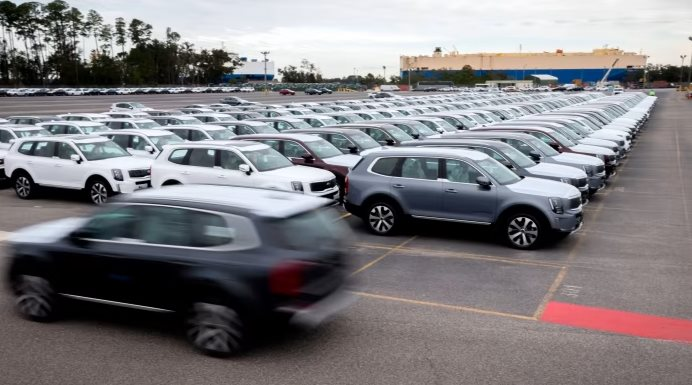
Illustrative image
Mexico is one of the markets that China is targeting to build factories. The country benefits from its proximity to the US, relatively low labor costs, and the opportunity to take advantage of low or zero tariffs on vehicles made in Mexico. About 20 Chinese automakers currently sell cars in Mexico but none have factories in the country. Chinese brands account for about a third of all brands in Mexico.
However, according to Reuters, the Mexican government is distancing itself from Chinese automakers under pressure from the US, declining to offer incentives such as cheap land or tax breaks to invest in electric vehicle production.
The most recent meeting between top Mexican officials and a Chinese automaker was in January, with executives from BYD — one of the world’s largest electric vehicle makers by sales.
At the meeting, Mexican officials made it clear that they would not be offering China the same kind of incentives it has given to automakers in the past, according to the sources, who asked not to be named. They also will not hold any future meetings with Chinese automakers.
A White House spokesperson said that US President Joe Biden will not allow a flood of Chinese cars into the market. Chinese automakers such as BYD, SAIC, Geely, Chery and JAC are trying to use Mexico as a back door to sell their cheaper electric vehicles in the US, where tariffs are currently 27.5%.
Mexico — Latin America’s second-largest economy — is caught between the world’s largest economy and biggest auto market.
Chinese automakers have previously argued that they could get around US tariffs and secure preferential access by setting up shop in Mexico, as long as they meet the rules on how much of a car must be made locally.
To avoid US tariffs, a certain percentage of a vehicle’s components and assembly must come from the region, and this varies by product and industry. At least 75% of a car’s core parts — such as its engine and transmission — must originate in North America.
BYD in late February insisted that any plant in Mexico would serve only the local market and not export to the US, but industry officials remain skeptical.
One of the sources told Reuters that BYD is now pursuing incentives from state governments, though these are typically less generous than those from the federal government.
States such as Durango, Jalisco, Mexico State and Nuevo Leon have been courting Chinese automakers to build assembly plants, offering them incentives. Nuevo Leon in December last year approved a $153 million incentive package for a Tesla plant.
Francisco Bautista, a partner at EY in Mexico, said federal incentives used to be very generous, including free land, water and energy, as well as assistance in hiring workers. Bautista added that these types of incentives have since been scaled back under the current administration, but bazıları are still given to major investors like Volkswagen.
In September, Mexican officials from the economy and foreign ministries traveled to Washington for a high-level US-Mexico dialogue. At the meeting, the topic of Chinese automakers setting up electric vehicle production in Mexico was raised for the first time, although it was not on the agenda.
According to Reuters




![[Photo Essay]: Experts, Managers, and Businesses Unite to Forge a Path Towards Sustainable Green Industry](https://xe.today/wp-content/uploads/2025/07/z678592918-150x150.jpg)


![[Photo Essay]: Experts, Managers, and Businesses Unite to Forge a Path Towards Sustainable Green Industry](https://xe.today/wp-content/uploads/2025/07/z678592918-100x70.jpg)




